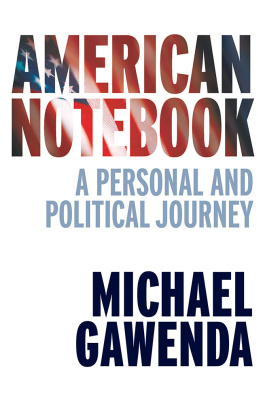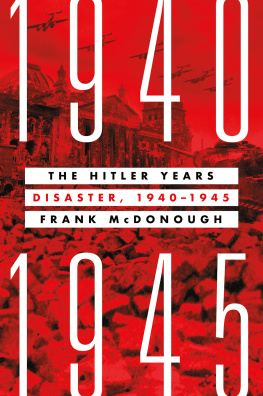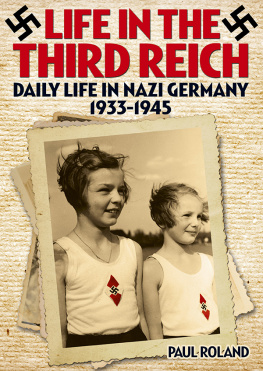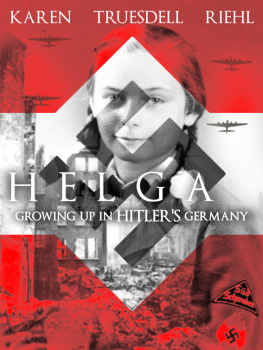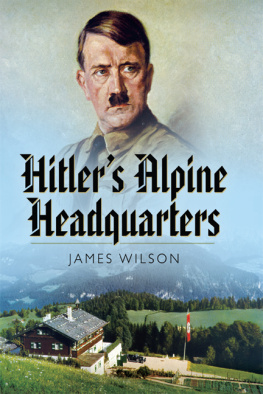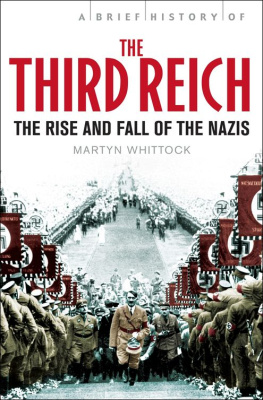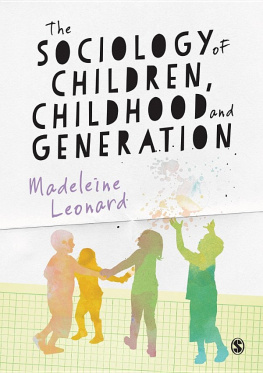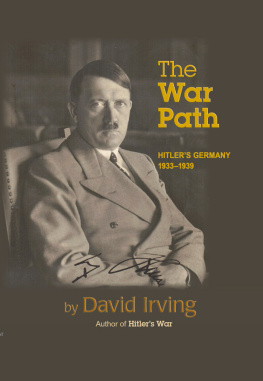Acknowledgments
My brothers, sister, and I all love our mother for what she did for us during the years portrayed in The Childrens War and afterwards, but we still feel the void of being deprived of our grandparents at a young age. The love they gave us during those few years in our home has endured in our memories.
I am indebted to my grandparents in Gleiwitz for teaching me handicrafts, making me appreciate classical music, and teaching me to retain and how to recall important events. Opa (Grandfather) Gawenda supported my interest in anything mechanical and made me appreciate the value of everything we did with our hands. Oma (Grandmother) Gawenda taught me how to love selflessly and never to expect thanks in return for anything I did but always to show appreciation for whatever was done for me. She also taught me to accept other cultures and never to feel superior to any fellow human, undoubtedly a dangerous line of thought during the Third Reich.
I owe my grandparents in Oberglogau my love for history, nature, and long walks and for recognizing flowers, trees, spices, teas, and birds. They helped me enjoy the love of books at a very young age. Opa Mller trained me to be observant and made me memorize what I had seen or heard. He taught me patience, patience, patience and helped me overcome my stuttering. Oma Mller taught me how to write and recognize the meaning of words and sentences by age four.
All four grandparents made me appreciate languages and people who are different from us. I know they wanted to be our grandparents until we grew up, but it was not to be.
I thank my wife, Irma, for making my postsecondary education possible, taking care of the children when I spent my time in colleges and universities. I also thank her for letting me spend many hours in front of my computer. I am grateful to my daughter, Brigitte, and my son, Philipp, for encouraging me to write down what I remember. I also thank my brothers and sister, Manfred, Jrgen, and Hannelore, for pushing me the last eight years to finish this book and let our two younger brothers, our children, and our grandchildren participate in our past. I also thank my country of origin and my new home for letting me achieve my dreams.
Authors Note
The Second World War officially ended in Europe on May 8, 1945, and in Asia some four months later. It had devastated Europe, Russia, North Africa, and parts of Asia. Fifty-five million people had lost their lives: soldiers, bombing victims, refugees, exiles, and victims of dictatorships or despotism.
The war was fought by all age groups and affected all age groups, from the oldest adults to the youngest children, but children experience war on a different level than adults. For the grown-ups, war was an ordeal. It was for us children as well, but it was also a series of adventures, beautiful and sometimes horrible.
When the Russian conquerors appeared in our region in January 1945, my mother chose to leave her home and parents in the town of Oberglogau and escape to the west with her four small children to evade persecution and the threat of Communism. Our escape was accomplished by bus, train, and horse-drawn wagon but mostly by foot. For us, it started in Upper Silesia, in what is today a province of Poland, crossed Czechoslovakia, led into Austria, and ended for a short time in an internment camp. It then continued after an escape from that camp into Bavaria. The total flight lasted close to eight months. Our father had been captured fighting on the Eastern front and was in prison in Siberia.
At that time, there were three boys and one girl in our family. My older brother, Manfred, and I were treated as twins, although we were less than one and a half years apart. Jrgen was the third brother, Hannelore our tiny sister.
For us, the war was a long string of adventures. In the beginning, as part of a middle-class family in Upper Silesia, we lived in homes that seemed like castles. We had a tremendous amount of freedom, beautiful and trusting friends, and daily contact with a large variety of animals. We experienced the four seasons over several years, with their immense beauty and extreme harshness.
Later we experienced brutality and cruelty but also kindness, compassion, and unselfish love. We saw death and destruction at an almost unimaginable level, but my mother and my grandparents guided us through the worst circumstances. Mothers feat in bringing her four children, mostly on foot, from our home to safe haven in Austria during one of the coldest winters in decades was indeed a remarkable human achievement. She was able to do this despite having sustained a serious back injury. She could have died had she given in to her pain and remained lying in the snow after she fell.
At times I have had the feeling that I could split into two people and keep the one with the bad experiences in the background or out of my consciousness. Manfred said once that it was like having one personality that had suffered and a second personality that actually could talk about what happened without having to get emotionally involved. We dont believe that we became insensitive because we still cried, maybe not in public, when someone who belonged to our circle of friends died, when we passed dead refugees along the road, when we saw our mother suffer, or when we heard about our fathers fate. We rarely cried when we got hurt or when an injury was being treated. We seemed able to transfer such pain to that alternate ego.
Mother, her parents and Fathers parents, and Maria, our nannyand later our fatherwere able to guide us through the most violent phases of the war and postwar periods, preventing permanent trauma.
The most difficult part of telling this childrens tale is to avoid introducing interpretations of the grown-ups, to remember what the child felt, how the child perceived, and how the child reacted.
I know we children were excited by the Second World War, by its constant changes, and we attached importance to our nonstop experiences, but we didnt fully comprehend the loss of our home. We did not always understand the loss of a loved one, and we did not understand the global changes that we were part of.
For us, war became destruction and death, and we made it our mission to be cautious and suspicious and somehow survive. We also thought that we had to make it our task to help our families survive, to escape death and destruction. That is how the war became our war, the childrens war.


